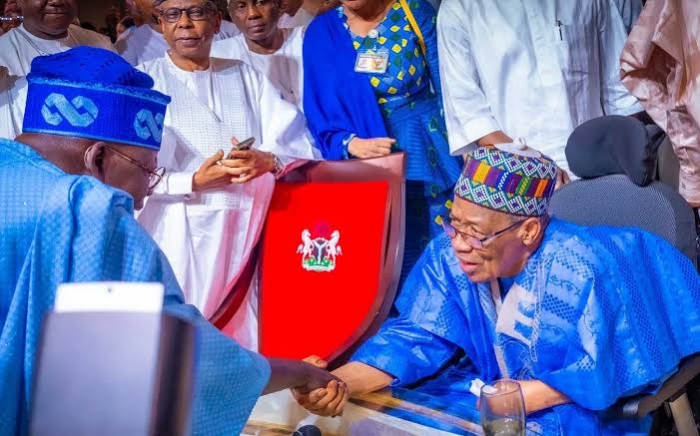Nigeria’s former military president, Ibrahim Babangida (IBB), has expressed regret over the annulment of the 12 June 1993 presidential election, widely regarded as one of the freest and fairest in Nigeria’s history. In his newly released autobiography, “A Journey in Service”, Babangida blamed the late General Sani Abacha and other military officers for the annulment, which occurred 32 years ago. The book, presented to the public on Thursday in Abuja, also served as the platform for the launch of the IBB Presidential Library project, which garnered N17.5 billion in donations from Nigerian business elites.
Babangida, who officially announced the annulment in a national broadcast on 24 June 1993, acknowledged in his 420-page memoir that the election was “credible, free, and fair” and was won by Moshood Abiola, the candidate of the Social Democratic Party (SDP). Abiola defeated Bashir Tofa of the National Republican Convention (NRC) with 8,128,720 votes, securing a majority and the required geographical spread across 28 states, including Abuja. Despite initially doubting Abiola’s victory, Babangida now admits that the results clearly showed Abiola’s win.
However, Babangida revealed that the annulment was orchestrated by military officers led by Sani Abacha, his chief of defence staff, who later became head of state. He claimed the annulment was carried out “without his permission” but took full responsibility for the decision, stating, “I regret June 12. I accept full responsibility for the decisions taken, and June 12 happened under my watch. Mistakes and missteps happened in quick succession.”
The memoir details the events leading to the annulment, including a court injunction obtained by the Association to Better Nigeria (ABN) on 10 June, two days before the election. Babangida denied supporting ABN’s activities, despite its leader, Arthur Nzeribe, being close to him. He described the legal and political chaos that ensued, including conflicting court orders and intense debates within the National Defence and Security Council (NDSC). Despite his initial decision to proceed with the election, the results were abruptly suspended on 16 June, and the election was ultimately annulled on 23 June, a decision Babangida claims was made without his approval.
The annulment led to widespread political turmoil, culminating in Babangida’s resignation in August 1993 and the installation of an interim government led by Ernest Shonekan, which was later toppled by Abacha in November 1993.
At the book launch, Nigerian business leaders pledged significant donations to the IBB Presidential Library project. Billionaire industrialist Abdul Samad Rabiu donated N5 billion, while Aliko Dangote, Africa’s richest man, contributed N2 billion and pledged an additional N2 billion annually for the next three years, totaling N8 billion. Former defence minister TY Danjuma pledged N3 billion, and businessman Arthur Eze donated N500 million. The library, described as a national institution, aims to preserve Nigeria’s political, military, and leadership history, particularly during Babangida’s eight-year rule.
The event was attended by prominent figures, including President Bola Tinubu, former President Olusegun Obasanjo, who chaired the event, and former Ghanaian President Nana Akufo-Addo, who delivered the keynote address. Other attendees included former Nigerian leaders Yakubu Gowon, Abdulsalami Abubakar, and Goodluck Jonathan, as well as former vice presidents Atiku Abubakar and Yemi Osinbajo, who provided a detailed review of the book.
Babangida’s memoir offers rare insights into his tenure, including the controversial annulment of the June 12 election.


































































